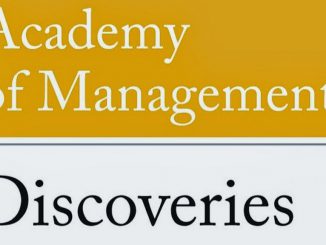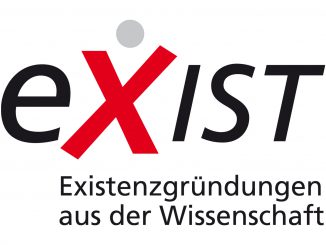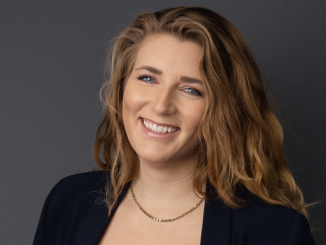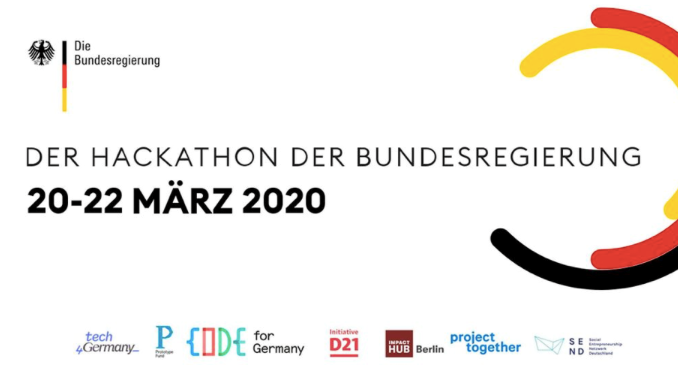
The Corona crises imposed severe social distancing on us. In times like these, digitization can play a fundamental role to help people withstand the situation, by creating new ways to interact and help each other, despite of the restricted social contact. Last weekend the former MBA Students of Munich Business School Adriane Rössler, Alexandra Braun, Davide Canavesi, Frank Spronck, and Wolfgang Müller, participated in one of the biggest hackathons in history, the #WirvsVirus initiative.
Seven IT Companies in collaboration with the German Federal Government initiated a 48-hour hackathon from March 20 to March 22. Designers, developers and socially engaged people were invited to find solutions for problems as a result from the coronavirus. The ideas should be turned into prototypes, an MVP (Minimum Viable Product), by the end of March 22 at midnight. Over 42.000 people registered in Germany for the marathon, a record of participants in the history of hackathons worldwide. According to former MBS Student Adriane Rössler, the organization triggered people with all types of backgrounds (from technical to social sciences) to participate, enriching this experience even more.
The inspiration and motivation to participate among the former students were distinct, but the main common factor was the importance of being socially engaged. “Diversity and inclusion is a top-of-mind topic in my daily life,” stated Frank Spronck as one example of his personal motivation. “We had a lot of discussions at work how we could support with our skills to survive the crisis. In the hackathon I found a possibility to do so,” Alexandra Braun shared. In a similar way, Davide Canavesi also mentioned, “I feel in this moment of crisis and big changes around, there is the need of a social involvement and only if we work all together we can find creative solutions. With this approach we can transform the difficulties of this moment in an opportunity”.
The hackathon was organized in different problem areas and the participants could choose in which area to participate. Among the options was Home Office, e-Learning, Human Resources for Hospitals, Local Businesses, and many others. The former students joined the topic of Local Businesses. “Pretty soon after filtering the options available in the hackathon, we realized that helping our community, small businesses and entrepreneurs to survive should be our top priority right now”, said Adriane Rössler.
At the beginning of the marathon, the group established a team. “It was all very chaotic in the beginning. No rules, no standards, just a lot of different people and opinions on Slack – but we managed it, by structuring ourselves, by using techniques we’ve learned during our studies and by failing forward,” told Alexandra Braun. In this type of marathon, the pace is extremely fast, “It was important to move fast and, more important, to adapt and change every time the situation became somehow frustrating. And when the team was finally set up: power, coffee, lack of sleep and a great team spirit. That’s all we needed to move fast,” Wolfgang Müller shared as reflection on the experience.
The students applied some of the techniques learned during their courses at Munich Business School, like the Design Thinking Method presented by Prof. Dr. David Wagner in his course of Digital Transformation. The team was able to come up in a short period of time with a prototype of a platform solution.
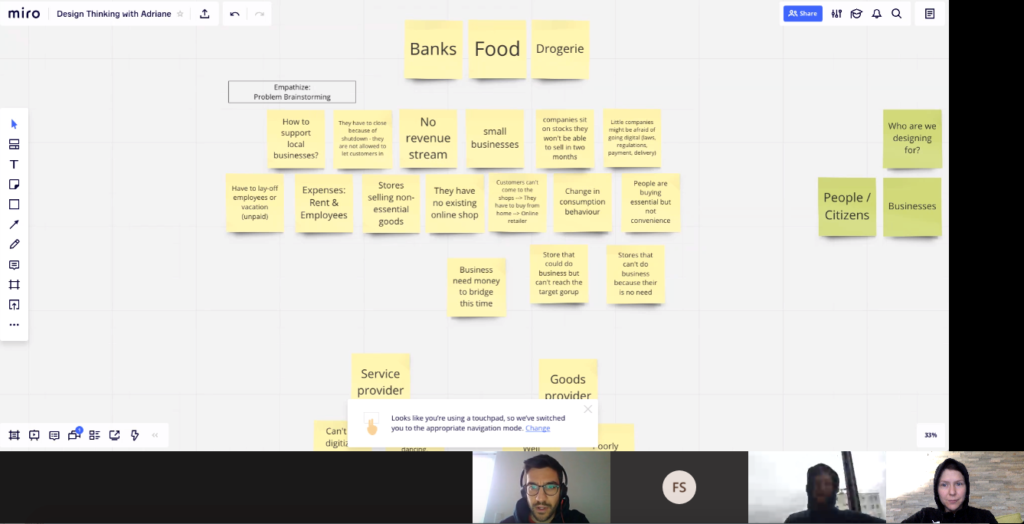
Engagement and motivation are important drivers in such projects. With the support of their former MBS students Frank Spronck and Davide Canavesi, who took the role of mentors, the team worked over the weekend trying to turn their idea into reality. “I think one big advantage was that the core team (us from MBS) was already used to work together at speed and looking at the bigger picture and was so easy to draft a quick solution applying all what we’ve learned during the MBA. Finding the developers and seeing them work in a completely different way was so amazing, two layers working in parallel but always well aligned,” noted David Canavesi.
The hackathon provided a great experience on how to get people motivated and how to do teamwork remotely, with people coming from different backgrounds and from different locations across Germany. The best example is that the MBA team met the four software developers online during the Hackathon for the first time ever. Most of these developers did not know each other: Julian Schäfer, Jeremias Wolff, Daniel Koch, Vlada Pototskaia, and Dominic Hillerkuss. In the end, this large heterogenic team of MBA friends and previously unknown software developers was able to submit the prototype on Sunday in the evening well before the hackathon ended.
What did the team prototype?
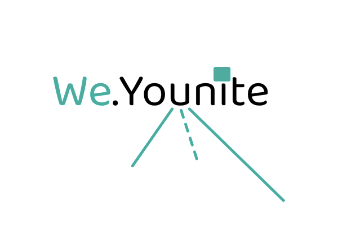
A platform and a whole product / marketing concept. The “baby” has a name: We.Younite. Branding concepts from the Marketing course with Prof. Dr. Alexander Hahn at MBS, helped to come to a quick proposition. With the support of Dominic Hillerkuss the logo was created during the marathon.
The objective of the platform is to match small companies, i.e., business owners (You.nitees) in need with people (You.niters) willing to help, in an easy, fast and intuitive journey. On one side the companies can ask for support: either vouchers, donations or technical skills. On the other side, people can register to support financially or with their skills, e.g. helping someone to create a website, to get an online presence, or to perform a cost-structure analysis.
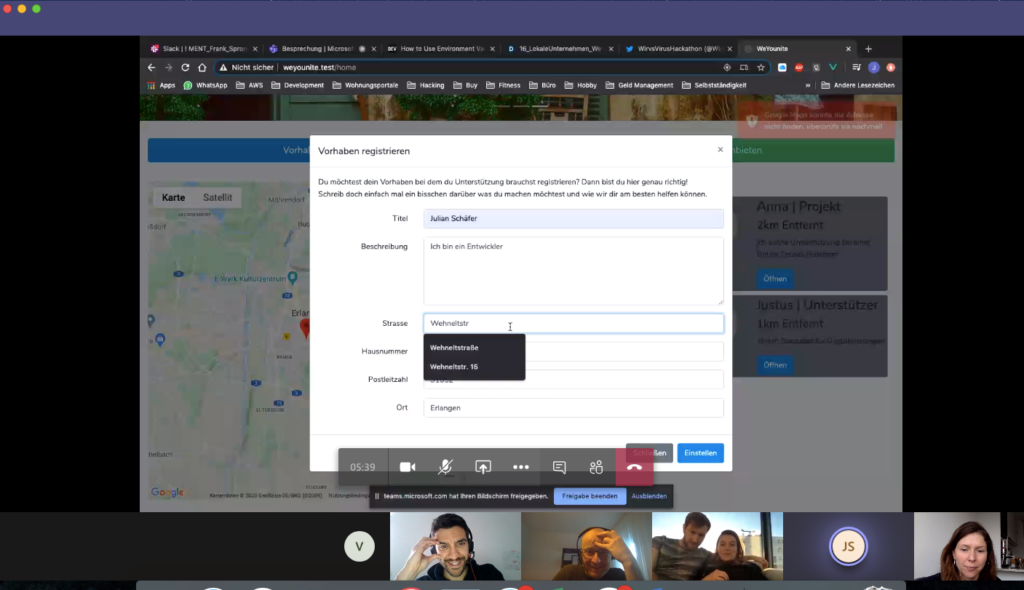
At We.Younite one can also search for the business by zip code, for instance if there is a specific business one would like to support. In addition, the platform allows people to recommend the company to someone else through social media channels. The point is to help the companies as soon as possible to get short term liquidity covered, to ensure their survival during the crisis.
Final results of the hackathon will be published on 30th of March, 2020. The selected projects will receive support and sponsorship to turn the prototype into a viable proposition. Main criteria for selection are: added value to society, degree of innovation, scalability, and technical progress.
In the end, the most important lesson for the former MBS students was that people from different expertise make projects better. The match of different skills allowed the team to produce something meaningful in the end. Failure was never an option, and everyone offered help in any possible way, as Wolfgang Müller concluded: “How much you can achieve in 36 hours, without being a running team, without personal contact and defined roles, processes etc., only driven by a common goal. The power of mutual commitment was amazing. Never thought so much support would be possible in this environment…simply: wow!” From their former Marketing Professor Dr. Alexander Hahn they took his note to heart, that your idea is worth nothing without execution. Finally, in mentor’s word Frank Spronck: “When there is no clear hierarchy between members of a team, the only reliance you have is on the individual contribution and flexibility of the members. Through a common urgency felt amongst participants, individual viewpoints, knowledge, and skills are brought together at a very high pace to define a proposition which can generate impact and will contribute to bringing relief for those who need it.”
Companies and especially small business which cannot be digitized are suffering the most, thousands of families worldwide affected by the coronavirus and the team of We.Younite is running against time. Even if their project is not chosen among the finalists, they will proceed with the project. The team is engaged to put its platform in the market urgently. This is a non-profit project and done beside regular jobs in the evenings. “Even if we help only 10-15 small business owners, this experience was worth every minute we did not sleep, in order to make it happen,” the whole We.Younite team is sure.
More about the We.Younite project
The project of the students can be viewed and liked here an YouTube. More information about the prototype can be found here. The project website can be reached at www.weyounite.eu. In case you want to support the students with donations to start immediately helping small businesses locally and worldwide, please contact them at we.younite@hotmail.com. E-mails for questions, comments and words of encouragement are also welcome.

